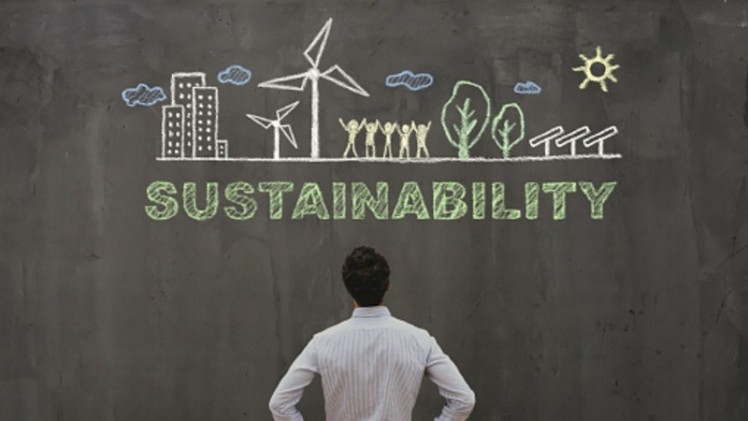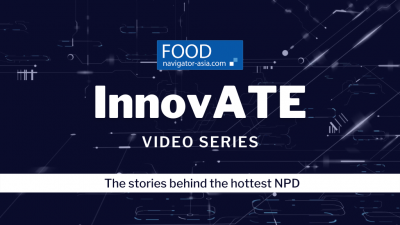Sustainability Snippets: Coke HK's recycling goals, mycoprotein as future of protein, new Olam nut brand and more feature in our round-up

A lot of bottle? Coke HK aims for 100% recyclable packaging by 2025, 50% recycled material in bottles by 2030
The Coca-Cola Company and its bottling partner Swire Coca-Cola Hong Kong is targeting to make its packaging 100% recyclable by 2025 and use 50% recycled material in its bottles and cans by 2030 in a bid to minimise waste.
The first step for its Hong Kong firm was to re-launch the iconic glass bottle for eight beverages to achieve its mission of a “World Without Waste”.
“The world has a packaging problem. Being the world’s biggest beverage company, we have a responsibility to help solve it. This new design is part of our action to minimise waste in the market,” said its Director for Public Affairs, Communications and Sustainability in Hong Kong, Taiwan, Macau and Mongolia, Steve Deng.
Mighty mushroom: Mycoprotein touted as future of protein due to flavour, nutrition and sustainability credentials
Asia’s first mycoprotein technology firm Mycovation believes that its products are the true future of alternative protein, with the firm touting its flavour, nutrition and sustainability credentials.
Mycovation is based in both Singapore and India, and its business and research model is primarily centred around mycoprotein fermentation from mushroom mycelium to develop this as a viable alternative protein product.
According to the firm’s CEO Shiva Susarla, mycoprotein holds immense potential to emerge as a major player within the alternative protein industry because of its advantages in all the areas that are the most important to consumers, namely flavour, nutrition and sustainability.
“Currently, the entire plant based movement whether in alternative meat or alternative dairy is mainly anchored around three major sources: Pea, soy and wheat protein, and when it comes to using these to make meat or dairy analogues, all of these bring with them significant off notes, plant flavours are very difficult to mask,” Susarla told FoodNavigator-Asia.
To be or nut to be: Olam’s new D2C brand Re- on juggling consumer demand for traceability, sustainability and health
Olam’s new direct-to-consumer (D2C) nuts brand Re- says it is tapping into three major trends – traceability, sustainability and health – as it eyes expansion from its Singapore launchpad into wider Asia, the US and UK.
The brand launched its range of nuts in March 2022 after two years of research and development.
The almond and cashew range is 100% natural, responsibly grown and traceable to the farms that produce them, claims its SVP and CMO, Venaig Solinhac.
“By natural, we mean it is non-GMO, produced using sustainable farming practices and the nuts can be traced back to its farms."
No more PVC: Taiwan latest market to eliminate PVC as food packaging material
Taiwan has become the latest international market to start eliminating the use of polyvinyl chloride (PVC) in food packaging, citing environmental and sustainability concerns over over-usage of the material.
The Taiwanese Environmental Protection Administration (EPA) announced on its website that effective July 1 2022, the use of PVC to make food packaging will be restricted, starting with flat packaging materials, and that this would affect all firms involved in the manufacturing, importation and sales of food packaging.
“It has been decided to restrict the use of PVC in food packaging starting the [second half of] this year in order to reduce the risk of harm to the environment and also public health caused by this material,” the EPA stated via a public statement.
Fairtrade and Farmforce scale-up ‘FairData’ partnership for cocoa farmers
A new innovation-driven partnership launched by Fairtrade International, Fairtrade Africa, and digital solutions provider Farmforce is set to extend the deployment of a smart data management system to more than two dozen cocoa cooperatives in Cote d’Ivoire.
Initially launched as a pilot in April 2021, the partnership between Fairtrade and Farmforce enables cooperatives to implement a digitalised Internal Management System, or IMS, to collect data on members’ farms, production, and sales, and enable them to better manage prominent risks such as deforestation.
The partnership expansion, inaugurated last month, will now see an additional 25 cooperatives engaged with Farmforce’s proprietary technology with nearly 400 people trained on how to use the software for optimizing efficiency for the cooperatives and their members.
“Our primary mission during this scale-up phase is to ensure that the involved cooperatives are enabled to use Farmforce effectively, leading to long-term benefits for their businesses and for their members,” said Jon Walker, Senior Advisor for Cocoa at Fairtrade International.















